Post Office scandal: Key figures deliver testimony
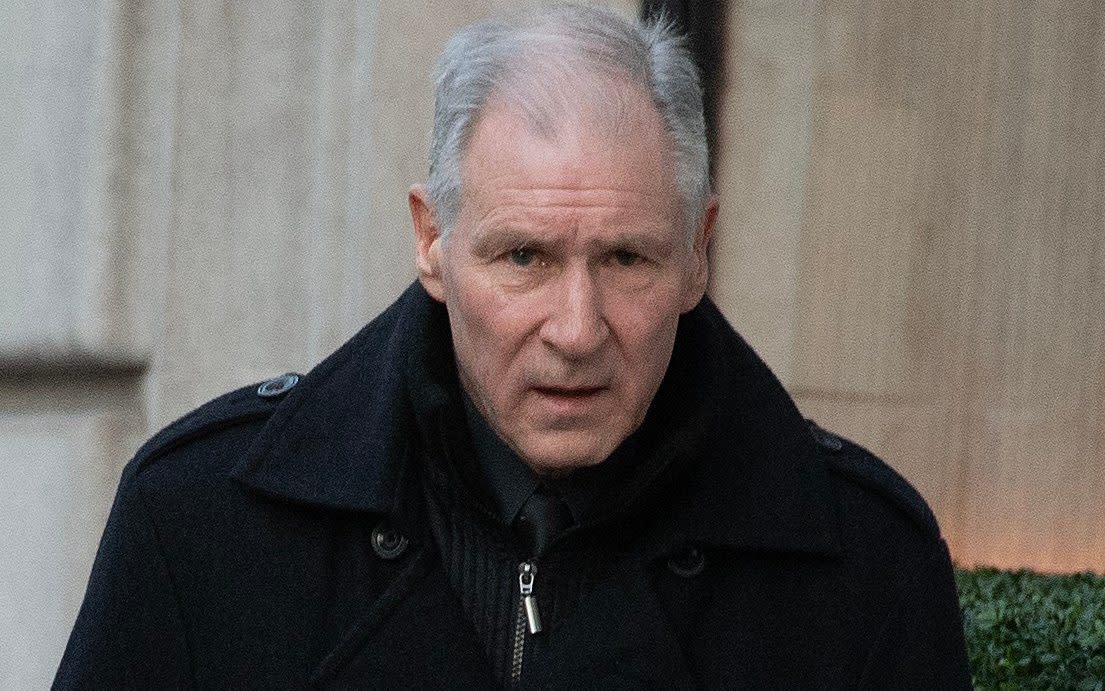
The public inquiry into the Post Office’s Horizon scandal continues to hear from witnesses about action taken against sub-postmasters.
As the Post Office targeted its own postmasters rather than admit flaws with its IT system, a whole network of staff were tasked with dragging their comrades to court.
Investigators helped put together cases against the state-owned company’s own staff.
Those prosecutions were based on flawed records generated by Horizon, with bosses turning a blind eye to suggestions that the system was inaccurate.
Four of the key personalities involved in the prosecutions are featured below.
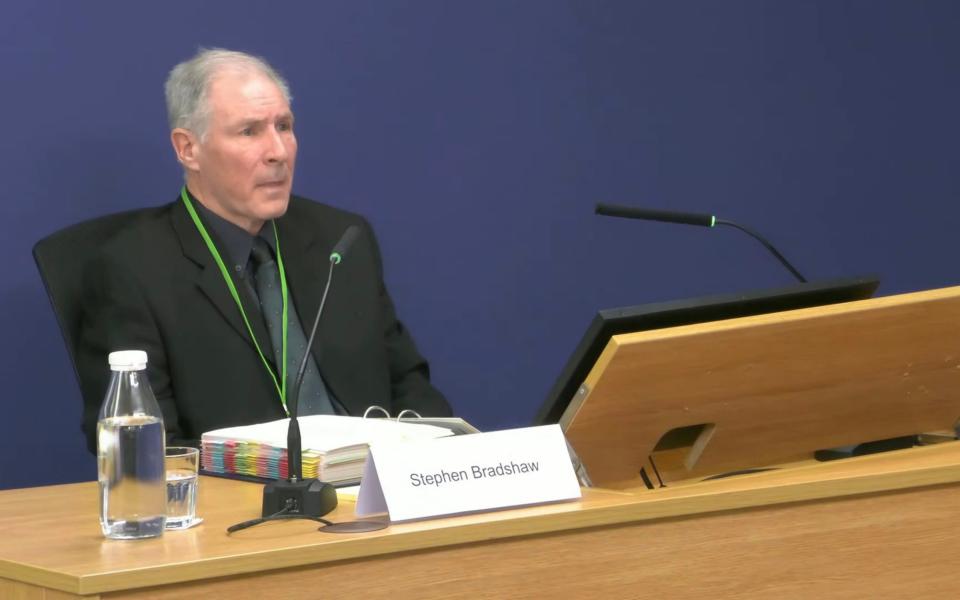
Stephen Bradshaw
Stephen Bradshaw was once a humble Post Office clerk.
Yet within twenty years of him moving on from the role, he had been involved in the criminal investigation of several sub-postmasters and mistresses – including a mother who fled the country following a prison sentence.
On Thursday, Mr Bradshaw was forced to address claims that he and his colleagues were like “Mafia gangsters” collecting bounty with “threats and lies”.
The inquiry also heard how Mr Bradshaw had allegedly called a sub-postmaster a “b----” and forced a wheelchair user to get into a parcel lift, a public inquiry was told.
Jason Beer KC, lead counsel to the inquiry, described him as having a “heavy footprint” in the scandal.
Shazia Sadiq, a former postmaster, said in her witness statement that she had received “threatening calls” from him and his colleague Brian Trotter including the former calling her a “b----” during a phone call in 2016 .
In August 2010, Mr Bradshaw allegedly made a former sub-postmaster who was wheelchair-bound take a “tiny parcel lift” to an interview room as she could not use the stairs.
The Post Office investigator said he could prove this did not happen, although the inquiry heard that the Post Office has not challenged the former sub-postmaster’s version of events.
After joining the Post Office in 1978 as a telegraph officer, over half of his 45-year career has been in the investigations team. He became a fraud investigator after completing a two-week course in 2000.
At the inquiry, Mr Bradshaw faced questions about his investigations including the case of Jacqueline McDonald, a sub-postmaster from Preston who served an 18-month prison sentence for theft and false accounting.
Ms McDonald had been running the Broughton Post Office for less than two years when auditors visited her branch and eventually calculated a shortfall of £93,947.
At sentencing in January 2011, the judge said she had “breached the trust” of both the Post Office and the community.
In her statement to the inquiry, Ms McDonald said investigators “behaved like Mafia Gangsters looking to collect their bounty with threats and lies”.
Mr Bradshaw refuted that she was “bullied, from the moment [the investigators] arrived”.
Mr Bradshaw has also been accused by sub-postmaster, Rita Threlfall, of asking her for the colour of her eyes and what jewellery she wore before saying; “Good, so we’ve got a description of you for when they come”, during an interview under caution in August 2010.
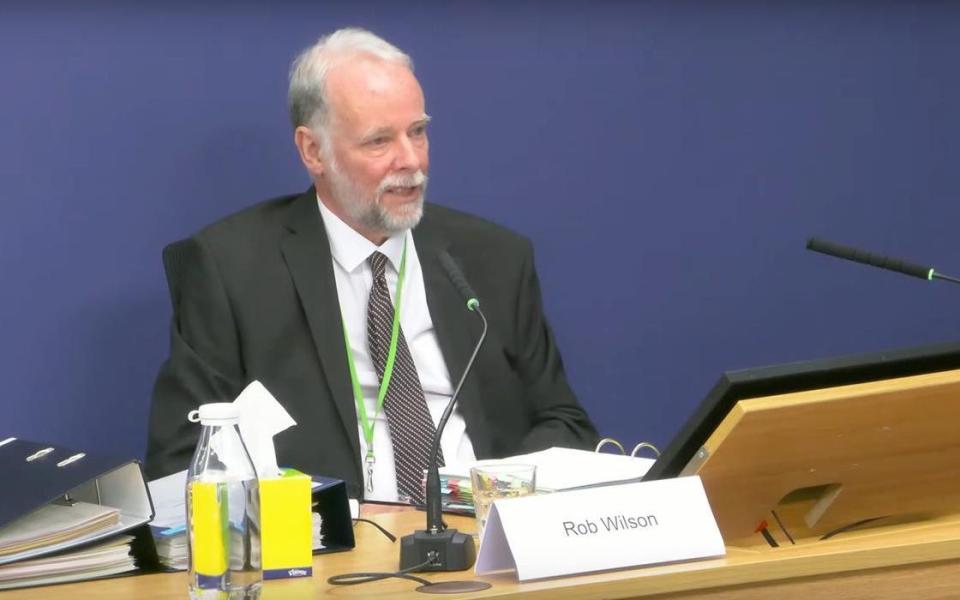
Rob Wilson
As Head of Criminal Law at the Post Office, Rob Wilson warned colleagues through internal email of the consequences of investigating “difficulties” with Horizon software.
Mr Wilson, who joined the Post Office in 2002, suggested that pausing proceedings pending an outcome of a probe would result in “adverse publicity” as it would be seen by the press and media to “vindicate the current challenges”.
This internal email was written in March 2010 – five years before the Post Office would cease prosecuting sub-postmasters for losses that did not exist.
The email began by suggesting that if it “is thought that there is a difficulty with Horizon then clearly [an investigation] is not only needed but imperative”.
It continued: “The consequence however will be that to commence or continue to proceed with any criminal proceedings will be inappropriate.”
While interrogating Mr Wilson, Mr Beer said: “What you are saying by this email is, ‘The Post Office will be in serious trouble if we get on with an independent investigation into the integrity of Horizon’.”
Mr Wilson responded: “Well, not necessarily. It depends what the independent report was going to say.”
Mr Wilson attempted to downplay the email, saying that he had “overreacted to being excluded from what I saw as being critical to me as the Head of the Criminal Law Team”.
However, when a colleague wrote to the Post Office General Counsel two years later stating that Mr Wilson remained “firmly of the view that an audit should not be carried out” and said in his [Wilson’s] words the Post Office had to “grit its teeth and get on with prosecuting and defending civil actions”.
Mr Wilson said he “didn’t believe” that there was a problem with the system “because of the Rod Ismay report”.
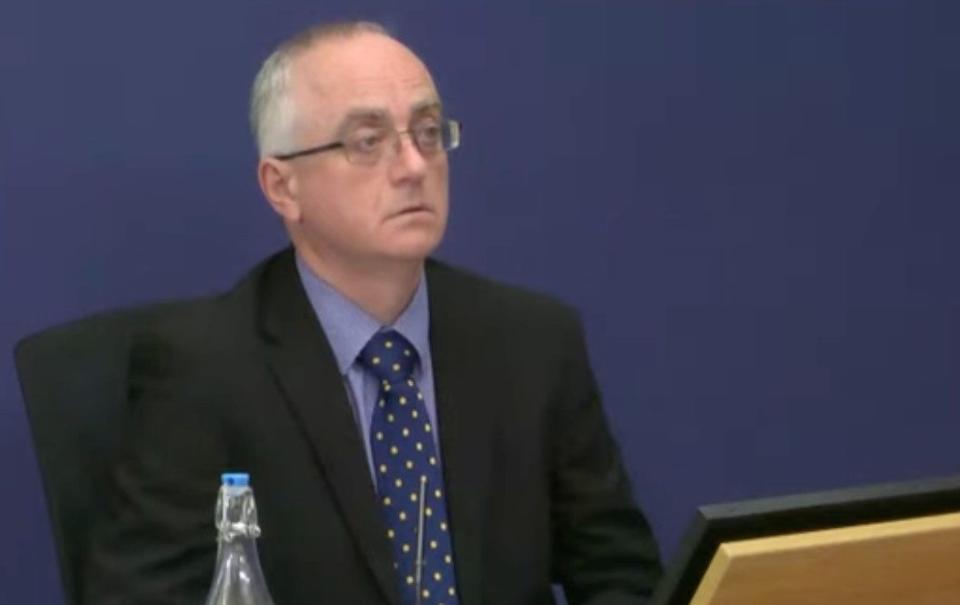
Rod Ismay
Rod Ismay, a former Ernst and Young auditor, was author of an August 2010 report into the Post Office’s Horizon system.
Sir Wyn Williams, the Post Office inquiry chairman, suggested the report might be “a whitewash” and Mr Ismay later said he had been tasked with finding “reasons for assurance” and that his remit was not investigating “allegations” against Horizon.
While testifying to the inquiry last May, Mr Ismay was asked if his report was only supposed to “present one side of the coin” about Horizon.
He responded: “Yes.”
In the document, dubbed the Ismay Report, the Post Office’s former head of product and branch accounting cautioned bosses against commissioning any independent reviews of Horizon which might have uncovered the true scale of its flaws.
While acknowledging that a review “could help give others the same confidence that we have” in the system, Mr Ismay went further by warning that a review could cast doubt on previous prosecutions carried out by the Post Office.
“Although we would be doing the review to comfort others, any perception that [Post Office Limited] doubts its own systems would mean that all criminal prosecutions would have to be stayed,” says the report.
“It would also beg a question for the Court of Appeal over past prosecutions and imprisonments.”
Before joining the Post Office in 2006, Mr Ismay had spent eleven years working for Big Four accounting firm Ernst and Young.
After leaving the state-owned postal operator he became finance manager for the Diocese of York. Mr Ismay also lists himself online as a volunteer with church-linked charitable organisations in Sheffield.
Today, he is finance director of Ashgate Hospice, an end-of-life care home in Derbyshire. In a post on the hospice’s website he says: “I’m motivated by working for an organisation that makes a difference to people’s lives.”
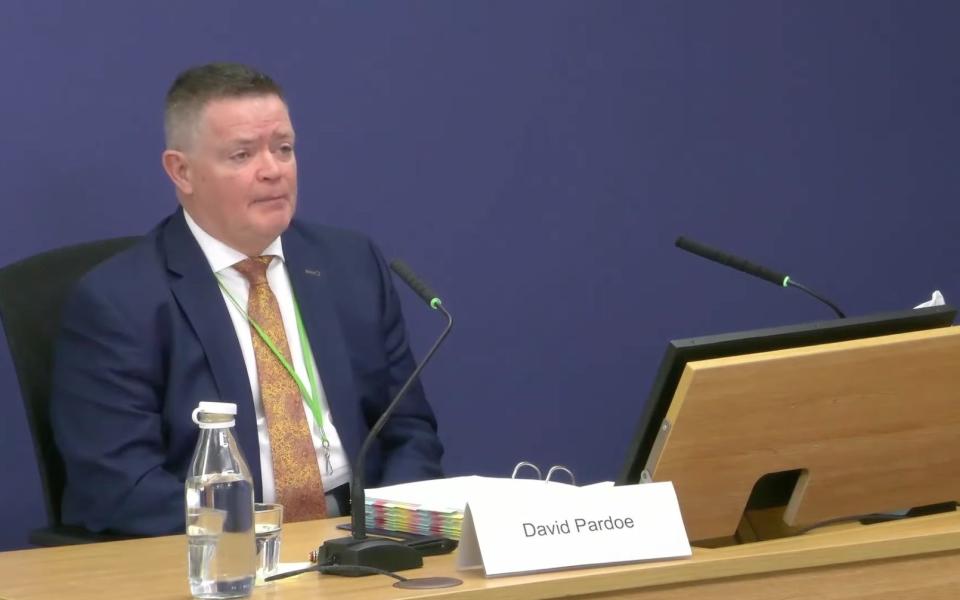
Dave Pardoe
Dave Pardoe was the third generation of his family to work for the Post Office and even ran his father’s branch when he went on holiday.
Despite his heritage, Lancashire-born Mr Pardoe played a vital role in criminalising sub-postmasters on the basis of flawed Horizon evidence.
As one of the Post Office’s senior security managers until 2014, Mr Pardoe personally signed off court prosecutions against staff accused of theft and false accounting among other offences.
At the inquiry he recounted that Post Office staff believed Horizon was a reliable system at the time.
Testifying in November, he said: “There was a persistent sentiment that the system was fit for purpose.
“I was never in a meeting when it was discussed with me the concept of putting the brakes on prosecution activity.
“It’s clear that there was a fear that, to do that, would immediately cast doubt on prosecutions that had been completed that had gone before. I was never privy to that type of conversation, no.”
Last year, he publicly rowed back on that position, saying repeatedly in his witness statement to the inquiry: “Had I been aware that there was knowledge of bugs, errors and defects that could ultimately and significantly affect the cash values required to perform an acceptable balance and [that] I was expected to remain mute around these and continue any form of role within the Security function, then I would have considered my position untenable.”
Today Mr Pardoe is head of profit protection for High Street arts and crafts retailer The Works, having left the Post Office more than a decade ago after becoming “worn out by the prevailing security team culture”.
He holds a master’s degree in security and risk management from the University of Leicester.

